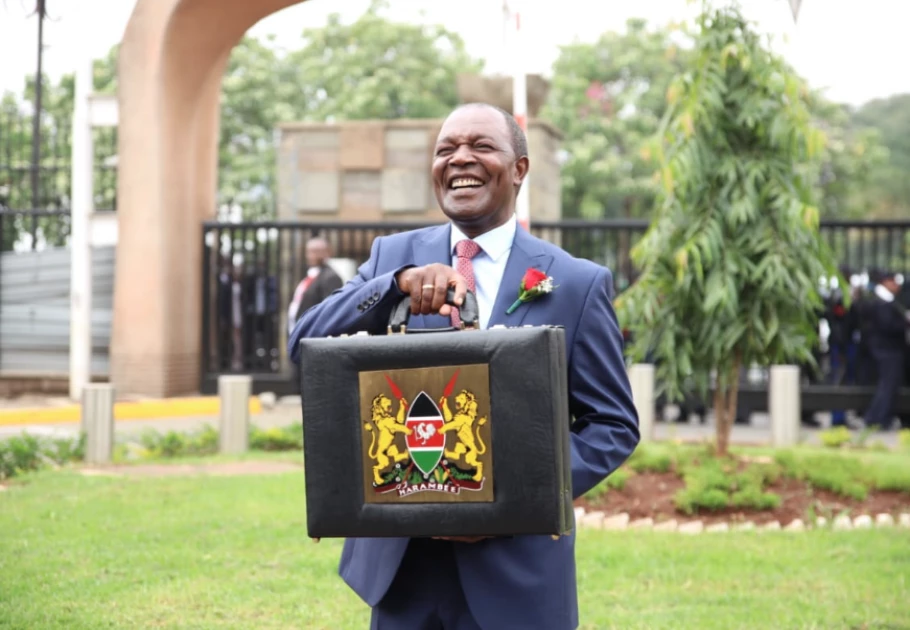The Finance Bill, 2024, which was tabled before the National Assembly on May 13, 2024, proposes significant changes to Kenya’s tax laws.
The bill aims to increase the country’s revenue collection to 20% of the Gross Domestic Product (GDP) from the current 16% and enhance tax compliance across various sectors, including the digital space.
Key Changes
New Taxes:
Motor-Vehicle Tax: A new tax of 2.5% of the value of the car, subject to a minimum of KES 5,000 and a maximum of KES 100,000, is introduced.
Minimum Top-Up Tax: The bill proposes a new tax, although details are not specified.
Significant Economic Presence Tax: This tax is introduced with an effective tax rate of 6%. It is aimed at taxing non-resident businesses that have a significant economic presence in Kenya, such as those operating through digital marketplaces.
Amendments to Existing Taxes:
Value Added Tax (VAT):
Determination of Input Tax Deductible: The bill proposes to delete the provision allowing taxpayers to deduct all input VAT incurred where taxable supplies are more than 90% of total mixed supplies. Instead, taxpayers will have to apportion input tax using the formula in subsection (6).
Refund of Tax on Bad Debts: The bill proposes to repeal provisions requiring taxpayers to repay the Commissioner any refunded VAT on bad debts, which were introduced by the Finance Act, 2023.
Excise Duty:
Increase of Excise Duty on Money Transfer Services: Excise duty on fees charged for money transfer services will increase from 15% to 20%.
Extension of Timeline for Payment of Excise Duty by Licensed Manufacturers of Alcoholic Beverages: The timeline for payment of excise duty by licensed manufacturers of alcoholic beverages will be extended from 24 hours to 5 working days upon removal of goods from the stockroom.
Repeal of Provisions on Automatic Adjustment for Inflation of Excise Duty Rate: The bill proposes to delete provisions allowing for automatic adjustment of excise duty rates for inflation.
Alignment of Tariff Classification of Goods under the Excise Duty Act to the East African Customs Union Protocol: The bill introduces a provision referencing the tariff codes used in Annex 1 of the Protocol on the Establishment of the East African Customs Union for purposes of classifying goods in the Excise Duty Act.
Income Tax:
New Definitions: The bill introduces new definitions, such as digital marketplace, donation, registered pension fund, royalty, and significant economic presence tax.
Rates and Exemptions: The bill amends the rates and exemptions of income tax for different categories of taxpayers and sources of income.
Other Changes:
Tax Procedures Act:
Increase of Timeframe for Issuance of Objection Decisions by the Kenya Revenue Authority (KRA): The bill proposes to increase the timeframe for issuing objection decisions by the KRA from 60 days to 90 days.
Relief because of Doubt or Difficulty in Recovery of Tax: The bill proposes to confer the KRA with the power to refrain from assessing or recovering an unpaid tax, with the prior written approval of the Cabinet Secretary, if it is determined that under certain circumstances, including impossibility to recover an unpaid tax and undue difficulty or expense in the recovery of an unpaid tax, among others.
Weekends and Public Holidays to be Excluded when Determining Statutory Timelines under Tax Laws: The bill proposes to change the manner in which time is computed under tax laws for purposes such as lodging of tax returns, payment of taxes, and submission of documents by excluding weekends and public holidays.
KRA Empowered to Direct Taxpayers to Integrate Systems with the KRA’s System:
The bill proposes to empower the KRA to issue a notice requiring a person to integrate their system with the KRA’s system to enable real-time submission of documents.
Miscellaneous Fees and Levies Act:
Reduction of the Rate of Export and Investment Promotion Levy: The bill proposes to reduce the rate of Export and Investment Promotion Levy on various items from a high of 17.5% on the customs value to a maximum of 2% of the customs value.
Data Protection Act: The bill proposes changes to the Data Protection Act, including the exemption of personal data processing for tax purposes from the Data Protection Act.
Other Provisions:
Contributions to Certain Medical Funds and Affordable Housing Levy to be Tax Deductible Expenses: The bill proposes to make contributions to the Social Health Insurance Fund, post-retirement medical fund, and the affordable housing levy tax deductible.
Bread to Attract VAT at 16% from Zero-Rated Status: Bread will now attract VAT at 16% from its current zero-rated status.
Introduction of Eco Levy: The bill proposes the introduction of an Eco Levy, although details are not specified.
The Finance Bill, 2024, aims to enhance tax compliance and increase revenue collection in Kenya. These proposed changes however are expected to have significant implications to ordinary Kenyans if implemented.
Kenyans aare already grambling about the high cost of living in Kenya.

Leave a Reply